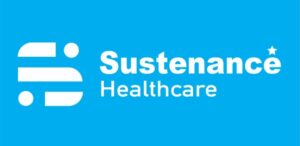Coronavirus/Covid-19- What is it?
Coronavirus/Covid-19 is a new illness that is caused by a virus called Coronavirus/Covid-19 and can affect your lungs and airways.
The most common symptoms include a dry cough, tiredness, and fever, but some patients may also experience a runny nose, sore throat, aches and pains or difficulty breathing.
For the latest information on coronavirus and its symptoms, visit the NHS website.
Note: If you feel unwell, or a member of your household has recently felt unwell, before booking or attending your appointment at Sustenance Healthcare premises, please check the link below for advice on when you or your family should stay at home. Please contact us on 0741 938 3111 if you can no longer attend a scheduled appointment.
https://www.gov.uk/government/publications/covid-19-stay-at-home-guidance/stay-at-home-guidance-for-people-with-confirmed-or-possible-coronavirus-covid-19-infection
Health and safety legislation and regulations:


